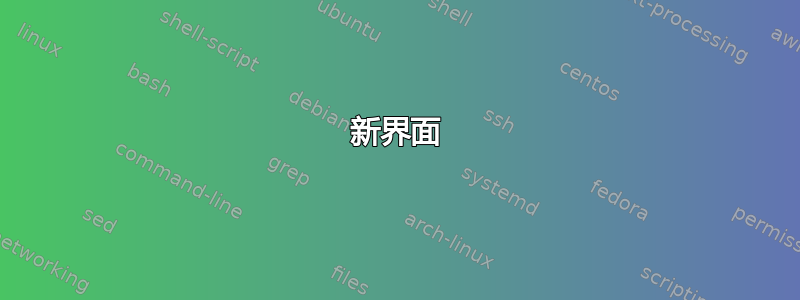
我该如何改变这个宏来将混合数字放在数字线下方?
在这个特定的例子中,我想要 1 1/4、1 2/4、1 3/4、2 1/4 等等。
不知道这是否需要一个单独的线程,但是有没有办法让宏选项是否包括这些混合数字?
我知道这不是真正的最小这是一个可行的示例,但我认为它使上下文更加清晰。
\documentclass{article}
\usepackage{tikz}
\newcommand{\NL}[5]
{\tikz[xscale=#1,yscale=#2]
{
\filldraw[orange] (0,0) rectangle (#5,0.2); %shaded portion of number line
\draw
(0,0)--(#3,0) %lower part of x-axis
(0,0.2)--(#3,0.2); %higher part of x-axis
\foreach \x in {0,...,#3}
\node[below] at (\x,-0.2) {\x}; %whole numbers underneath number line
\pgfmathparse{#3*#4}
\foreach \x in {0,...,\pgfmathresult} %fractional tick marks and numbers above number line
{
\draw (\x/#4,-0.2)--(\x/#4,0.2);
\node[above] at (\x/#4,0.25) {$\frac{\x}{#4}$};
}
\fill[green,opacity=0.75] (#5,0.1) circle[x radius=0.2cm/#1,y radius=0.2cm/#2]; %green dot
}
}
\begin{document}
Draw and label a number line from 0 to 3 with tick marks at every quarter, emphasizing \(\frac{7}{4}=1\frac{3}{4}\). Show your answer using both a length and a point.
\NL{4}{1.2}{3}{4}{7/4}
%{x-scale}{y-scale}{from 0 to 3}{denominator}{emphasized point}
\end{document}
该代码产生如下结果:
答案1
也许是这样的?
\documentclass[tikz,border=10pt,multi]{standalone}
\usepackage{xparse}
% ref: WeCanLearnAnything at http://tex.stackexchange.com/questions/267921/macro-for-mixed-numbers-on-number-line-tikz (but I doubt this is the original source)
\NewDocumentCommand\NL { s m m m m m }
{\tikz[xscale=#2,yscale=#3]
{
\filldraw[orange] (0,0) rectangle (#6,0.2);% shaded portion of number line
\draw
(0,0)--(#4,0)% lower part of x-axis
(0,0.2)--(#4,0.2);% higher part of x-axis
\foreach \x in {0,...,#4}
\node [anchor=mid] at (\x,-0.5) {\x};% whole numbers underneath number line
\pgfmathparse{#4*#5}
\foreach \x in {0,...,\pgfmathresult}% fractional tick marks and numbers above number line
{
\draw (\x/#5,-0.2)--(\x/#5,0.2);
\node[above] at (\x/#5,0.25) {$\frac{\x}{#5}$};
\IfBooleanF {#1}{
\pgfmathsetmacro\intbit{int(\x/#5)}
\pgfmathsetmacro\fracbit{int(\x-#5*\intbit)}
\ifnum\intbit=0\let\intbit\relax\fi
\ifnum\fracbit=0\else
\node [anchor=mid] at (\x/#5,-0.5) {$\intbit\frac{\fracbit}{#5}$};
\fi
}
}
\fill[green,opacity=0.75] (#6,0.1) circle[x radius=0.2cm/#2,y radius=0.2cm/#3];% green dot
}
}
\begin{document}
\NL{4}{1.2}{3}{4}{7/4}
\NL*{4}{1.2}{3}{4}{7/4}
\end{document}
新界面
但是,我很想重新考虑用户界面。很难记住需要多少个参数以及哪个是哪个。另外,如果能够改变线条的其他方面就好了:点的颜色和填充、点的不透明度等等。
为了实现这一点,您可以使用键值接口。由于您已经在使用 TikZ,因此使用其密钥管理可能是明智的。
我还会配置命令,以便您可以将一个或多个数字线包含到更大的图片中,并且使您在设置键时尽可能灵活。
以下是一份草稿,当然可以通过多种方式进行微调:
\tnl在 TikZ 图片内创建数字线,因此\tikz\tnl;将该线绘制为独立图片;number line={<number line settings>}是 TikZ 的一个选项,可以按通常的方式设置,例如\begin{tikzpicture}[number line={<number line settings>}]或\tikzset{number line={<number line settings>}}等。默认设置基于您的 MWE。它设置数字线的各种属性:fraction=<opt>分母(4)v scale=<opt>垂直缩放(1.2)h scale=<opt>水平扩展(4)max=<opt>最高数字(3)number to=<opt>填充线至({7/4})mixed numbers=<opt>打印混合数字(false)fill=<opt>填充线颜色(orange)dot=<opt>点颜色(green)dot opacity=<opt>点不透明度(.75)
\NumberLine*[<number line settings>]旨在用于 TikZ 环境之外并创建独立数字线。带星号的版本不打印混合数字。
首先,仅使用默认值重现早期代码的输出,以检查输出是否匹配:
\NumberLine
\NumberLine*
具有一些非默认设置的数字线:
\NumberLine[
dot=red,
dot opacity=.5,
fill=blue,
fraction=3,
number to={2/3},
h scale=5,
]
让我们改变默认值:
\tikzset{
number line={
fraction=5,
mixed numbers=true,
number to={8/5},
h scale=2,
v scale=1.25,
max=6,
}
}
并尝试将两个数轴组合成一张图片:
\begin{tikzpicture}
\tnl;
\begin{scope}[yshift=-30mm]
\tnl;
\end{scope}
\end{tikzpicture}
完整代码:
\documentclass[tikz,border=10pt,multi]{standalone}
\usepackage{xparse}
\makeatletter
\newif\ifnl@mixednumbers
\tikzset{% http://tex.stackexchange.com/a/159856/ - Claudio Fiandrino
number line/.code={
\tikzset{
/number line/.cd,%
#1
}
},
/number line/.cd,
fraction/.store in=\nl@fraction,
v scale/.store in=\nl@vscale,
h scale/.store in=\nl@hscale,
max/.store in=\nl@max,
number to/.store in=\nl@numberto,
mixed numbers/.is if=nl@mixednumbers,
fill/.store in=\nl@fill,
dot/.store in=\nl@dot,
dot opacity/.store in=\nl@dotopacity,
fraction=4,
v scale=1.2,
h scale=4,
max=3,
number to={7/4},
mixed numbers=false,
fill=orange,
dot=green,
dot opacity=.75,
}
\newcommand*\tnl{% modified from ref: WeCanLearnAnything at http://tex.stackexchange.com/questions/267921/macro-for-mixed-numbers-on-number-line-tikz (but I doubt this is the original source)
\begin{scope}[xscale=\nl@hscale,yscale=\nl@vscale]
\filldraw[\nl@fill] (0,0) rectangle (\nl@numberto,0.2);% shaded portion of number line
\draw
(0,0)--(\nl@max,0)% lower part of x-axis
(0,0.2)--(\nl@max,0.2);% higher part of x-axis
\foreach \x in {0,...,\nl@max}
\node [anchor=mid] at (\x,-0.5) {\x};% whole numbers underneath number line
\pgfmathparse{\nl@max*\nl@fraction}
\foreach \x in {0,...,\pgfmathresult}% fractional tick marks and numbers above number line
{
\draw (\x/\nl@fraction,-0.2)--(\x/\nl@fraction,0.2);
\node[above] at (\x/\nl@fraction,0.25) {$\frac{\x}{\nl@fraction}$};
\ifnl@mixednumbers
\pgfmathsetmacro\intbit{int(\x/\nl@fraction)}
\pgfmathsetmacro\fracbit{int(\x-\nl@fraction*\intbit)}
\ifnum\intbit=0\let\intbit\relax\fi
\ifnum\fracbit=0\else
\node [anchor=mid] at (\x/\nl@fraction,-0.5) {$\intbit\frac{\fracbit}{\nl@fraction}$};
\fi
\fi
}
\fill[\nl@dot,opacity=\nl@dotopacity] (\nl@numberto,0.1) circle[x radius=0.2cm/\nl@hscale,y radius=0.2cm/\nl@vscale];% green dot
\end{scope}}
\NewDocumentCommand \NumberLine { s O {} }{%
\IfBooleanTF {#1}{%
\tikz[number line={mixed numbers=false,#2}]\tnl;%
}{%
\tikz[number line={mixed numbers=true,#2}]\tnl;%
}}
\makeatother
\begin{document}
\NumberLine
\NumberLine*
\NumberLine[
dot=red,
dot opacity=.5,
fill=blue,
fraction=3,
number to={2/3},
h scale=5,
]
\tikzset{
number line={
fraction=5,
mixed numbers=true,
number to={8/5},
h scale=2,
v scale=1.25,
max=6,
}
}
\begin{tikzpicture}
\tnl;
\begin{scope}[yshift=-30mm]
\tnl;
\end{scope}
\end{tikzpicture}
\end{document}








